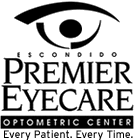Many adults aren't aware that cataracts are the leading culprit for sight loss for individuals over the age of 54. In reality, more than half of adults over sixty-five have some amount of cataracts.
What are cataracts?
Cataracts occur when the ocular lens becomes clouded. This prohibits the transmission of light that is essential for vision.
How do I know I have cataracts?
Cataracts are sometimes brushed off as regular age-related vision loss, however there are certain symptoms that characterize them. Depending on the type of cataract, symptoms include blurry vision, sensitivity to light or a noticeable dullness of colors. Some types of cataracts show no symptoms until they are more advanced while others may even result in a temporary improvement in near vision known as ''second sight''.
Cataract comes from cataracta which means ''waterfall'' in Latin. This may be because the appearance of opaque clouds in the eye is similar to the cloudy rush of water which also appears white. Cataracts that develop as a result of aging usually are characterized by an initial cloudiness in the lens, followed by swelling and shrinkage of the lens leading to a complete opacity and loss of sight.
Preventing and Treating Cataracts
Researchers have not yet determined fail-safe ways to avoid cataracts but some say that reducing ultraviolet exposure your eyes from UV rays with sunglasses can reduce cataract development. Some studies show that antioxidants and reducing consumption of salt can also be preventative.
Although early vision loss can be treated using visual aids such as eyeglasses or magnifying devices, at some point vision will likely deteriorate enough to require surgery. Cataract surgery is actually the most common surgery in the country and is generally a success. In the standard surgery, the doctor takes out the opaque lens and implants a clear plastic lens called an IOL (intraocular lens). For nine out of 10 patients, they are able to restore vision to between 20/20 and 20/40.
Don't let vision problems go untreated. A yearly eye exam is advised for every adult, particularly those over 40. Contact our Escondido, CA eye practice today to book an exam.


*Closed daily for lunch between 1pm to 2pm